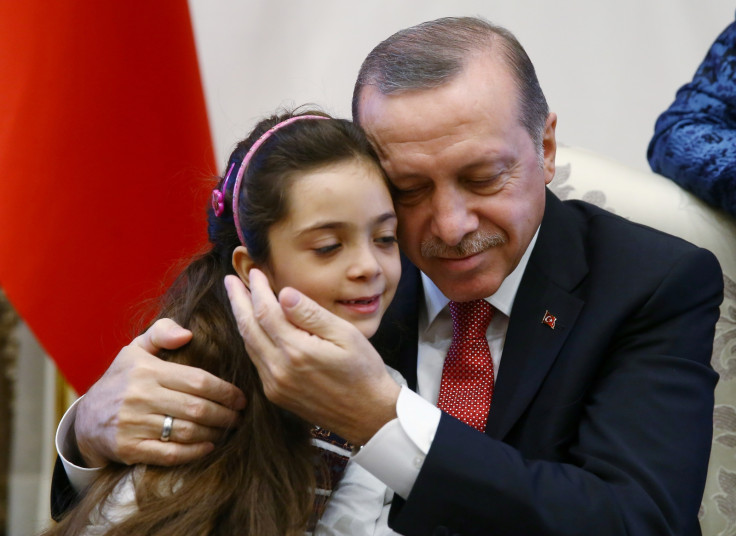Thousands wait to leave east Aleppo while the government-controlled west celebrates Christmas
Christmas celebrations were briefly disrupted by an explosion, but no injuries were reported.
Snow is falling on Aleppo, as thousands of people are still waiting to leave the embattled city.
Activists denounced early on 21 December around 3,000 people were stalled in the cold as the last buses meant to carry the civilians and fighters away from the embattled city have been delayed for nearly 24 hours.
According to the Associated Press, the Syrian army of Bashar al-Assad and the rebel forces' mutual distrust is to blame for delays in evacuations, which some anti-Assad activists refer to as "forced deportations" but the two parties have now reached a new deal.
Ahmad Qara Ali, spokesman for the Ahrar al-Sham rebel faction, announced on 21 December afternoon that the "evacuations will begin shortly," the Associated Press reported.
The fighters also reportedly said they will be the last to leave eastern Aleppo, to make sure that the civilians' safety is "fully guaranteed".
The International Committee of the Red Cross (ICRC) says it is prepared to facilitate the evacuations when they resume, and shared a video of the weather conditions in eastern Aleppo. The organisation says that more than 25,000 people have been evacuated so far.
We took this video near the front line in #Aleppo this morning. With snow falling, it's freezing and many have little means to keep warm. pic.twitter.com/Oa0hECDuYs
— ICRC Syria (@ICRC_sy) December 21, 2016
Russia and Turkey were the main negotiators of a series of ceasefires meant to ensure the evacuation of civilians and fighters from the besieged eastern part of Aleppo.
Among the people who left eastern Aleppo is the family of the 7-year old Bana Alabed, who became known for tweeting about the situation in Aleppo in the past few months. The family met with Turkish President Recep Tayyip Erdogan on 21 December.

While thousands of people are driven away from what remains of their homes in the embattled rebel-held eastern region of the city, the government-controlled western Aleppo celebrated the Christmas season.
A Christmas tree was lit in the Azizieh square of western Aleppo's Christian neighbourhood on 20 December. Hundreds of people gathered to celebrate what they see as a victory of Syrian President Bashar al-Assad against the anti-government rebels.
A reporter for the Russian state media RT, Lizzie Phelan, documented the festivities. According to her, locals paid themselves for the decorations, which included huge banners displaying portraits of Assad and his allies, Russian President Vladimir Putin and Hassan Nasrallah, the secretary general of Iran-backed Lebanese paramilitary party Hezbollah. Syrian and Russian flags were also waved by the jubilant crowds.
The celebrations were briefly disrupted by an explosion nearby the square, reported the Associated Press. There were no reported injuries, but it sent a sign sent maintaining order and security in the government-controlled areas will not be an easy task.
Local shop owner put up these enormous posters of #Nasrallah #Putin and #Assad to preside over Xmas celebrations in #Aleppo pic.twitter.com/kA8UnnY09v
— Lizzie Phelan (@LizziePhelan) December 20, 2016
In western Aleppo – throughout the civil war – life has continued with a certain degree of normality. In March, The Washington Post reported on a tale of two cities: while the east was targeted by airstrikes, in the western side of Syria's largest city, families picnic, students attended university and people enjoyed the latest Hollywood releases at the cinema and meals at the restaurant.
However, in late October, the rebels launched a large counter-offensive against government-controlled western Aleppo. The UK-based Syrian Observatory for Human Rights reported the fighting in western Aleppo involved violent explosions, including suicide car bombs, preceded by heavy shelling from rebel groups. The UN condemned the attacks, which caused numerous civilian casualties.
© Copyright IBTimes 2025. All rights reserved.






















